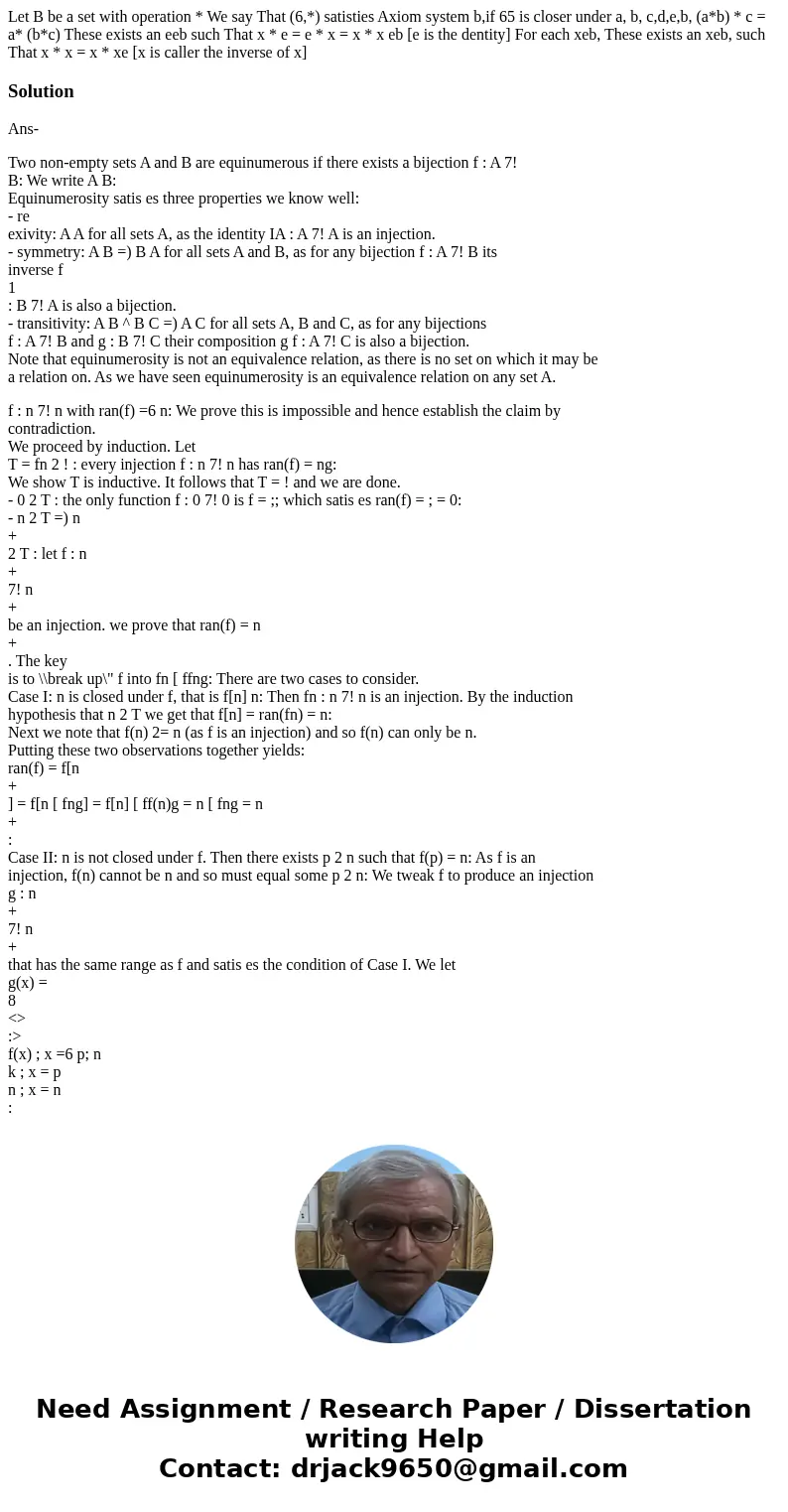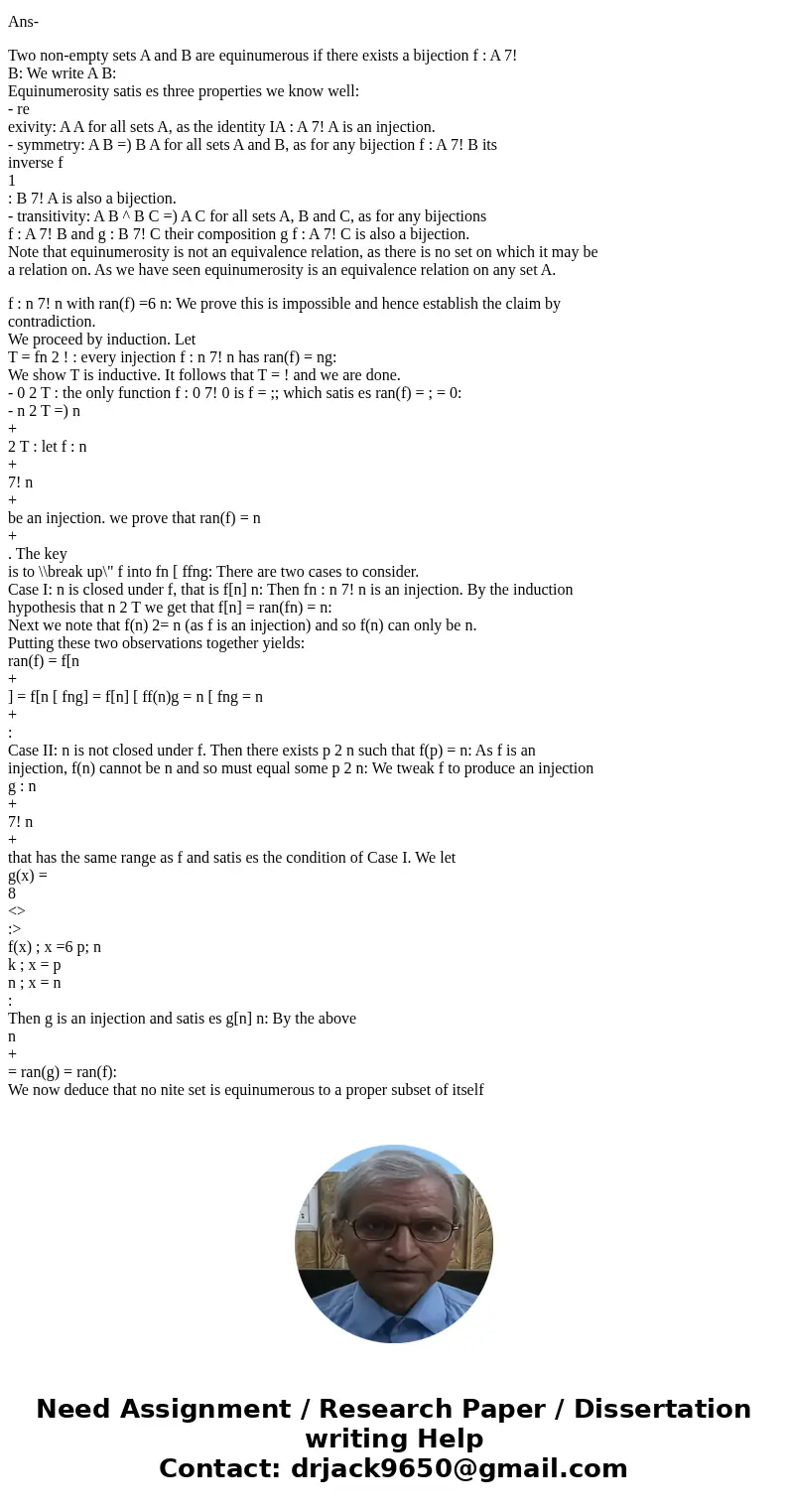Let B be a set with operation We say That 6 satisties Axiom
Solution
Ans-
Two non-empty sets A and B are equinumerous if there exists a bijection f : A 7!
B: We write A B:
Equinumerosity satis es three properties we know well:
- re
exivity: A A for all sets A, as the identity IA : A 7! A is an injection.
- symmetry: A B =) B A for all sets A and B, as for any bijection f : A 7! B its
inverse f
1
: B 7! A is also a bijection.
- transitivity: A B ^ B C =) A C for all sets A, B and C, as for any bijections
f : A 7! B and g : B 7! C their composition g f : A 7! C is also a bijection.
Note that equinumerosity is not an equivalence relation, as there is no set on which it may be
a relation on. As we have seen equinumerosity is an equivalence relation on any set A.
f : n 7! n with ran(f) =6 n: We prove this is impossible and hence establish the claim by
contradiction.
We proceed by induction. Let
T = fn 2 ! : every injection f : n 7! n has ran(f) = ng:
We show T is inductive. It follows that T = ! and we are done.
- 0 2 T : the only function f : 0 7! 0 is f = ;; which satis es ran(f) = ; = 0:
- n 2 T =) n
+
2 T : let f : n
+
7! n
+
be an injection. we prove that ran(f) = n
+
. The key
is to \\break up\" f into fn [ ffng: There are two cases to consider.
Case I: n is closed under f, that is f[n] n: Then fn : n 7! n is an injection. By the induction
hypothesis that n 2 T we get that f[n] = ran(fn) = n:
Next we note that f(n) 2= n (as f is an injection) and so f(n) can only be n.
Putting these two observations together yields:
ran(f) = f[n
+
] = f[n [ fng] = f[n] [ ff(n)g = n [ fng = n
+
:
Case II: n is not closed under f. Then there exists p 2 n such that f(p) = n: As f is an
injection, f(n) cannot be n and so must equal some p 2 n: We tweak f to produce an injection
g : n
+
7! n
+
that has the same range as f and satis es the condition of Case I. We let
g(x) =
8
<>
:>
f(x) ; x =6 p; n
k ; x = p
n ; x = n
:
Then g is an injection and satis es g[n] n: By the above
n
+
= ran(g) = ran(f):
We now deduce that no nite set is equinumerous to a proper subset of itself


 Homework Sourse
Homework Sourse